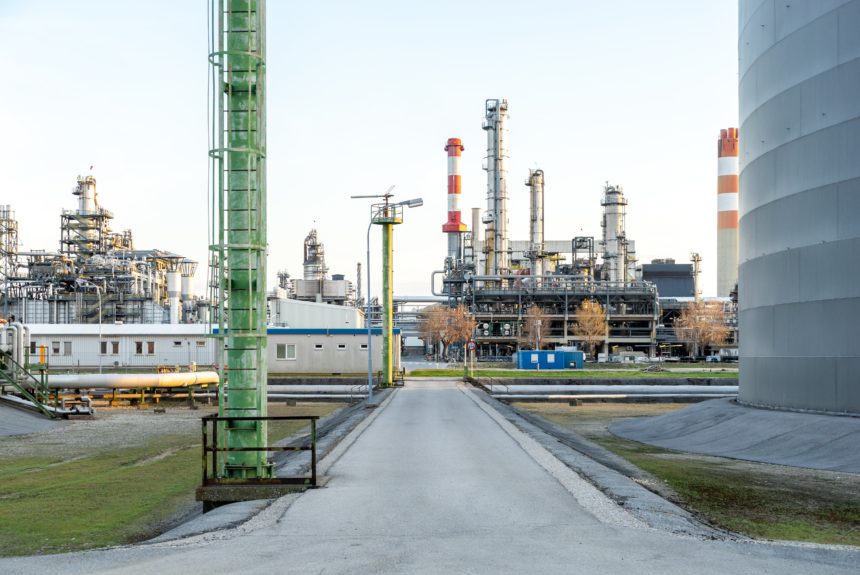Heavy industry, which includes steel, chemical, oil, cement, and aerospace, produces items that are essential for daily life. Moreover, these industries are economic powerhouses and cornerstones for global trade.
While economically important, heavy industry is also one of the leading CO2-emitting sectors of both the domestic and global economy. Globally, industry accounts for about 19% of direct greenhouse gas emissions and 33% of total emissions when supply chains are considered. Due to the versatility and importance of the products that these industries produce, lowering the adverse environmental impacts of heavy industry while maintaining economic competitiveness is essential to reaching overall climate objectives.
Fact vs. Myth
- FACT: Heavy industries are heavy carbon emitters.
- In 2019, industrial emissions made up 23% of all U.S. greenhouse gas emissions.
- MYTH: Targeting solely the domestic production of heavy industries in the U.S. will significantly lower global emissions.
- While domestic emissions reductions are important, heavy industry is global by nature, so solutions must also be global. Heavy-handed domestic regulations would weaken U.S. competitiveness while providing few climate benefits.
- FACT: Progress from heavy industries is essential to reaching climate goals.
The importance of heavy industry
- Heavy industry is essential for economic growth.
- In 2017, America’s steel industry accounted for nearly two million jobs and $520 billion in economic output.
- The U.S. chemical industry supports 25% of GDP, employing 800,000 people.
- In 2019, America’s aerospace industry contributed close to $400 billion to the U.S. economy, accounting for 1.8% of GDP.
- Heavy industry powers our daily lives.
- Petroleum fuels our cars, is used in clothing, and creates healthcare products.
- Fertilizers produced from our chemical industry are important for food supply.
- Our chemical industry also produces daily-use items such as detergents, toothpaste, and cleaning products.
- Steel is vital for the construction of everything from cars and ships to buildings and appliances, as well as materials critical for our national defense.
- Cement is a critical input for a wide range of infrastructure applications. It’s used in homes, schools, hospitals, roads, bridges, dams, sidewalks.
Markets vs Mandates
- There is currently robust private sector investment to improve competitiveness and reduce emissions.
- Several members of the Aerospace Industries Association, including Airbus, 3M, and Acme, are making meaningful investments into hydrogen fuel.
- A Colorado cement plant operated by LafargeHolcim is developing a carbon capture system to sequester the plant’s emissions.
- ArcelorMittal, the world’s largest steel producer, has recently announced net-zero emissions goals by 2050.
- Additionally, steel is the most recycled material in the world.
- Monolith Materials has begun constructing an emissions-free ammonia plant.
- The American Chemistry Council has adopted guiding principles to reduce emissions and fight climate change.
- Carbon Cure is injecting recycled CO2 into its concrete mix.
- Government regulations may hinder environmental progress for heavy industries.
- The lengthy and costly approval process under New Source Review disincentivizes manufacturing plants or factories from upgrading old equipment and replacing it with new, more environmentally-friendly alternatives.
- Tariffs hinder free trade, increase costs for consumers and hurt economic freedom. This, in turn, hurts the environment.
How to Further Decarbonise Heavy Industries
- Given the global importance of heavy industries, solutions must be global and domestic.
- Domestically:
- Reform regulations such as New Source Review, which disincentivize updates and investments in newer, more environmentally-friendly technologies.
- Through the Department of Energy, invest in emissions reductions technologies such as carbon capture and storage.
- Empower the private-sector to continue voluntarily reducing emissions.
- Globally:
- Eliminate unnecessary tariffs to allow global free trade.
- Global trade reduces cost for consumers, expands customer bases for American companies and allows countries to more freely trade with partners who share similar environmental goals.
- Engage in multilateral and bilateral trade agreements to facilitate trade that benefits American families and the environment.
- Eliminate unnecessary tariffs to allow global free trade.
Summary:
- Emissions reductions from heavy industries will be a critical component to meeting any global climate objectives.
- Due to the nature of these industries, climate solutions must be global and domestic.
- By reducing harmful domestic regulations, opening up global trade, and allowing the private sector to continue its environmental progress, we can reduce the environmental impact of heavy industries while maintaining American competitiveness.


